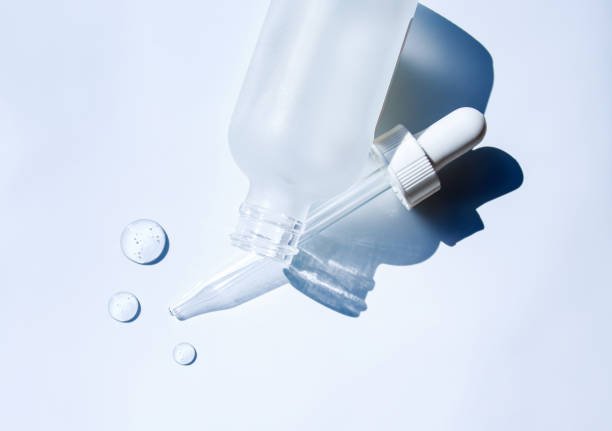Oily skin can be both a blessing and a challenge. While it often ages slower and appears more supple due to natural oils, it also tends to produce excess sebum, which can clog pores, leading to acne, blackheads, and an unwanted shine. For those with oily skin, managing it effectively is key to achieving a balanced, healthy complexion. In this guide, we’ll cover golden tips to help you embrace and manage oily skin effectively, offering long-term solutions for radiant skin.

Table of Contents
1. Identify Your Skin Type and Understand Its Needs
• Why It’s Important: Recognizing your skin type as oily is essential for adopting the right skincare routine. Oily skin produces more sebum due to factors like genetics, hormones, and even seasonal changes. By understanding that excess oil production is natural, you can avoid harsh treatments that can make your skin worse.
• Tip: Take note of how your skin reacts throughout the day. If you find yourself with a shiny T-zone (forehead, nose, and chin) and makeup that slides off easily, you likely have oily skin.
2. Cleanse Your Face Twice Daily with a Gentle, Oil-Control Cleanser
• Why It’s Important: Regular cleansing helps remove excess oil, dirt, and makeup, which can clog pores and trigger breakouts. Over-cleansing, however, can strip your skin of essential moisture, leading it to produce even more oil to compensate.
• Golden Tip: Choose a gentle, gel-based, or foaming cleanser formulated specifically for oily or acne-prone skin. Avoid cleansers with harsh chemicals, which can irritate your skin. Wash your face no more than twice a day – once in the morning and once before bed.
3. Moderate Exfoliation: The Key to Clear Skin Without Overdoing It
• Why It’s Important: Exfoliation helps remove dead skin cells that accumulate on the skin’s surface, which can lead to clogged pores and breakouts. However, exfoliating too often can disrupt the skin’s barrier, causing more oil production.
• Golden Tip: Opt for a gentle exfoliant containing salicylic acid, a beta-hydroxy acid (BHA) that penetrates deeply into pores to clean them. Aim to exfoliate 2-3 times a week, depending on your skin’s sensitivity.
4. Use an Astringent Toner to Control Oily skin and Tighten Pores
• Why It’s Important: A toner helps remove residual impurities and oils left after cleansing. For oily skin, an astringent toner can help tighten pores and reduce excess oil production.
• Golden Tip: Look for alcohol-free toners with ingredients like witch hazel, salicylic acid, or niacinamide. These ingredients control oil and soothe inflammation without overly drying the skin. Apply toner with a cotton pad to your T-zone and other oily areas.
5. Moisturize Daily with a Lightweight, Oil-Free Moisturizer
• Why It’s Important: Many people with oily skin avoid moisturizers, thinking it will make their skin oilier. Skipping moisturizer can cause the skin to produce even more oil as it tries to compensate for the lack of hydration.
• Golden Tip: Use a lightweight, oil-free, non-comedogenic moisturizer (meaning it won’t clog pores). Gel-based or water-based moisturizers work well for oily skin, providing the necessary hydration without feeling heavy or greasy. Moisturize twice daily after toning.
6. Daily Sunscreen: Protection Without the Shine of oily skin
• Why It’s Important: Sun exposure not only causes premature aging but can also lead to an overproduction of sebum as the skin tries to protect itself. Sunscreen is essential for all skin types, including oily skin.
• Golden Tip: Choose a non-greasy, oil-free sunscreen with at least SPF 30. Look for formulas labeled as mattifying or suitable for oily skin to reduce shine. Apply sunscreen as the last step in your skincare routine every morning, even on cloudy days.
7. Control Shine with Blotting Papers and Setting Powder
• Why It’s Important: Oily skin tends to look shiny by mid-day, which can be frustrating. Using blotting papers and powder helps absorb excess oil without disturbing your makeup or skincare.
• Golden Tip: Keep blotting papers in your bag for on-the-go touch-ups. Use them by gently pressing on oily areas, focusing on the T-zone. Follow up with a light dusting of translucent powder to maintain a matte finish.

.
8. Apply a Clay or Charcoal Mask Once a Week
• Why It’s Important: Clay and charcoal masks are known for their oil-absorbing properties. Regular use of these masks helps to remove impurities from deep within the pores, reducing the occurrence of breakouts and shine.
• Golden Tip: Apply a clay mask once a week to draw out impurities and reduce oil production. Look for masks containing kaolin clay or bentonite clay, which are especially effective for oily skin. Leave the mask on for about 10-15 minutes before rinsing thoroughly.
9. Add Retinoids to Your Evening Skincare Routine
• Why It’s Important: Retinoids are vitamin A derivatives that help control oil production and reduce the appearance of large pores. They also stimulate cell turnover, which keeps the skin smooth and reduces breakouts.
• Golden Tip: If you’re new to retinoids, start with a lower-concentration product and use it every other night to allow your skin to adjust. Over time, this ingredient can work wonders for keeping your skin clear and balanced.
10. Stay Hydrated and Watch Your Diet
• Why It’s Important: What you consume impacts your skin. Foods high in sugar and processed carbohydrates can spike insulin levels, which can increase oil production and inflammation.
• Golden Tip: Drink plenty of water daily to keep your skin hydrated from the inside out. Incorporate more fruits and vegetables into your diet, and limit sugary or processed foods. Omega-3 fatty acids, found in foods like salmon and walnuts, can also help reduce inflammation.
11. Opt for Lightweight, Oil-Free Makeup Products
• Why It’s Important: Using heavy makeup products can clog pores and lead to more breakouts in oily skin. Oil-free, non-comedogenic products reduce the risk of clogging and shine.
• Golden Tip: Use a mattifying primer before applying foundation to help control shine throughout the day. Choose oil-free, long-lasting foundations, and powders, and avoid heavy layers. If possible, let your skin breathe by opting for minimal makeup when you don’t need it.
12. Stick to a Consistent Skincare Routine
• Why It’s Important: Skincare routines work best with consistency, especially for oily skin. Switching products frequently can irritate the skin and disrupt the oil balance.
• Golden Tip: Stick to a routine for at least a few weeks before introducing new products. Be patient and give your skin time to adjust. A consistent routine can improve oil control and overall skin health over time.
13. Consult a Dermatologist if Needed
• Why It’s Important: If over-the-counter products aren’t delivering the results you want, or if you’re struggling with persistent acne, a dermatologist can provide targeted solutions.
• Golden Tip: Dermatologists can prescribe medications, stronger topical treatments, or even suggest procedures to control oily skin and treat acne more effectively. Professional guidance can make a huge difference in managing oily skin.
Conclusion
Oily skin can be manageable, even beneficial, with the right care. By choosing the right products and following these golden tips, you can embrace your skin’s natural characteristics while keeping excess oil and shine under control. Remember that skincare is a journey—your commitment to a thoughtful and consistent routine will help you achieve a balanced, glowing complexion that lasts.
These tips for oily skin are about balance: allowing your skin’s natural oils to work for you without overwhelming your pores or causing unwanted shine.


